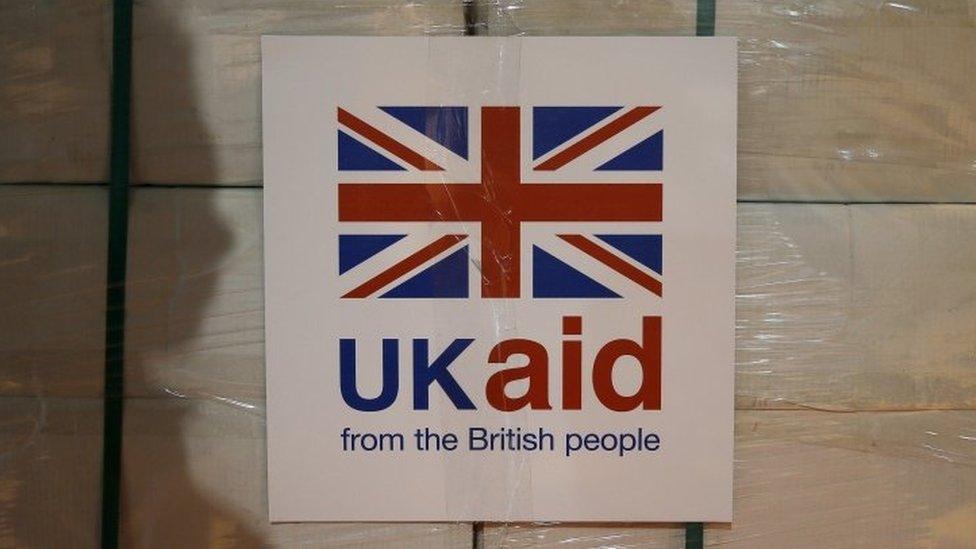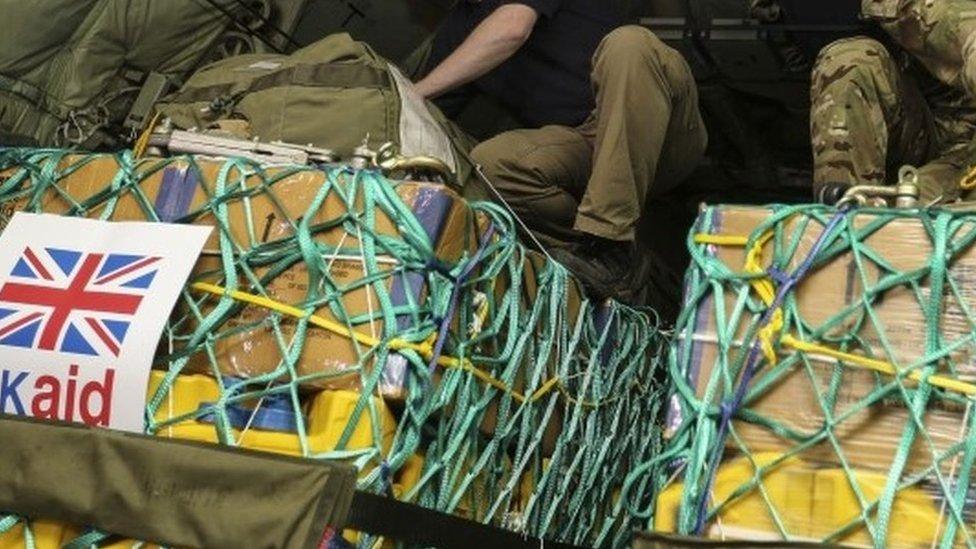Foreign aid: UKIP calls for 80% cut in annual spending
- Published

UKIP is calling for an 80% cut in the foreign aid budget and for money to be spent instead on domestic services.
It said much of the UK's spend, £12.5bn in 2015, was ineffective in alleviating poverty and left recipients worse off by perpetuating bad government.
It wants spending to be stripped back to humanitarian and emergency aid only and a law guaranteeing 0.7% of national income be spent to be repealed.
The government said the aid budget helped boost "security and prosperity".
The UK's humanitarian spending has more than doubled since 2011.
In 2015, the UK spent £1.26bn on humanitarian assistance around the world, including in war zones like Syria and Yemen, compared with £422m in 2011.
It accounted for 16% of all bilateral aid - money which is directly spent in countries, regions and projects of the UK's choice - compared with 13% on governance and society, 12% on health and 12% on economic development.
The government remains committed to the 0.7% target despite unease among some of its MPs about whether the aid budget, one of few areas to see an increase in spending in recent years, is providing value for money.
'Trade not aid'
Publishing a report on the UK's aid commitments on the eve of its spring conference, UKIP - a longstanding critic of UK policy - said spending should be pared back to £2.5bn a year focusing on emergency responses and eradicating disease.
It claimed the existing budget was being "abused" to fund political advocacy and that multilateral spending through external partners, which accounted for 37% of total UK spending in 2015, incurred huge administrative costs.
The 0.7% spending guarantee, enshrined in law in 2015, was based on "inaccurate assumptions" about how best to generate economic development, it said, with aid in some cases providing an obstacle to internal reform and trade innovation.
"An increasing body of evidence suggests that more aid is not the best path to prosperity for developing countries but that more trade is," said the party's foreign aid spokeswoman Lisa Duffy.
"For too long, our government has prioritised ineffective aid spending over its basic obligations to British citizens."
But a spokeswoman for the Department for International Development said: "The UK aid budget invests in our security and prosperity and is a key part of Global Britain's international leadership as we leave the EU.
"All DfID programmes and partners are subject to rigorous checks and scrutiny to ensure we reach the world's poorest and most vulnerable, while also achieving the best value for UK taxpayers."
The government has said its assistance is saving thousands of lives in Syria, where the UK is the second largest single donor, and other conflict zones.
Since 2010, the UK has re-focused its aid budget, with increased spending on countries such as Pakistan, Afghanistan, South Sudan and Somalia seen as critical to regional security and countering the spread of violent Islamic extremism.
The BBC recently reported a new cross-Whitehall fund is being set up to help poor nations counter Russian influence and Islamic extremism, a project intended to better align aid spending with strategic national interests.
- Published13 February 2017

- Published7 February 2017
